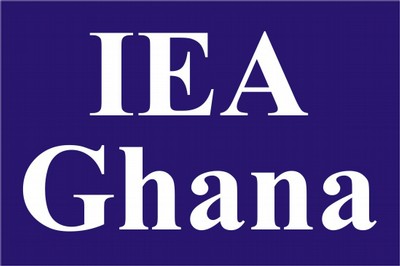A new national poll by the Institute of Economic Affairs (IEA) has revealed overwhelming public support for non-partisan elections of Metropolitan, Municipal, and District Chief Executives (MMDCEs), with a strong preference for candidates to apply individually rather than being nominated by political leaders.
The follow-up survey, conducted across all 16 regions between October 3 and 20, 2025, sampled 1,311 Ghanaians aged 18 and above.
The findings show that 71.37% of respondents want MMDCE aspirants to apply as individuals, signalling rising demand for a citizen-led, merit-based selection process at the local government level.
Only 15.7% of respondents preferred presidential nomination of candidates, while 12.98% favoured nomination through assembly structures—underscoring a significant shift away from political gatekeeping in decentralised governance.
According to the IEA, the trend reflects growing public dissatisfaction with political interference in local administration and a strong push for reforms that redefine how power is exercised at the district level.
“The findings underscore Ghanaians’ desire for greater autonomy and accountability in local governance,” the IEA noted. “Citizens want MMDCEs who are chosen based on competence, not party affiliation or presidential discretion.”
Respondents also emphasised that individual application would strengthen transparency and reduce political patronage in district leadership.
Ghana has long debated whether MMDCEs should be elected, appointed, or selected through hybrid systems. The IEA’s latest data suggests that public appetite for full non-partisan elections has increased significantly since the previous national consultations in 2019.Ghana travel guide
The results come at a time when stakeholders—including civil society groups and decentralisation advocates—are pushing for renewed national dialogue on constitutional reforms that would allow for an overhaul of Ghana’s local governance structure.
With more than seven in ten Ghanaians favouring an open, competitive selection process, the pressure is expected to mount on policymakers to revisit stalled reforms and give citizens direct influence over who leads at the district level.
























































![[FREE FREE MONEY] Predict and Win a Guaranteed GH¢200 From Us EVERY WEEK](https://wordpress.ghanatalksradio.com/wp-content/uploads/2022/02/Predict-and-Win-Final-09-03-2021-218x150.jpg)
![[Predict & Win – 8th/Oct.] WIN A Guaranteed ¢200 From Us This Week](https://wordpress.ghanatalksradio.com/wp-content/uploads/2021/10/maxresdefault-16-218x150.jpg)
![[Predict & Win – 2nd] WIN A Guaranteed ¢200 From Us This Week](https://wordpress.ghanatalksradio.com/wp-content/uploads/2021/09/maxresdefault-50-218x150.jpg)
![[Predict & Win – 25th] WIN A Guaranteed ¢200 From Us This Week](https://wordpress.ghanatalksradio.com/wp-content/uploads/2021/09/maxresdefault-36-218x150.jpg)
![[Predict & Win – 18th] WIN A Guaranteed ¢200 From Us This Week](https://wordpress.ghanatalksradio.com/wp-content/uploads/2021/09/maxresdefault-23-218x150.jpg)









![[National cathedral] See full list of churches that have contributed since 2018](https://wordpress.ghanatalksradio.com/wp-content/uploads/2020/09/Ghana-National-Cathedral-GhanaTalksRadio-100x70.jpg)

![[WATCH GTR News] COVID Funds Misappropriation; Chaos In Bantama; Russia-Ukraine War; more](https://wordpress.ghanatalksradio.com/wp-content/uploads/2022/03/maxresdefault-8-100x70.jpg)

